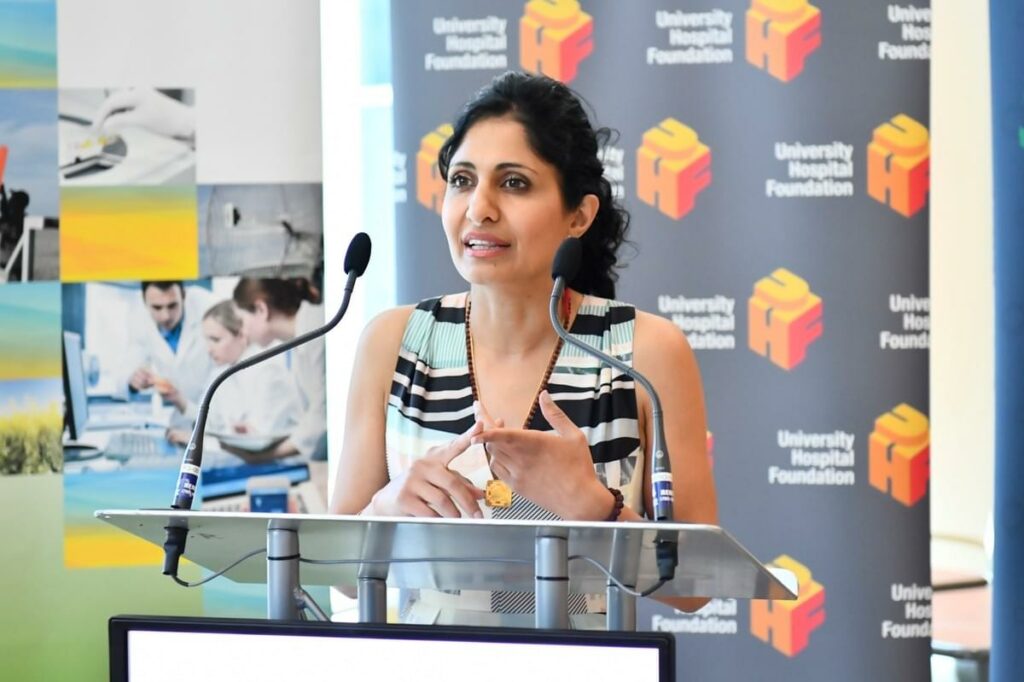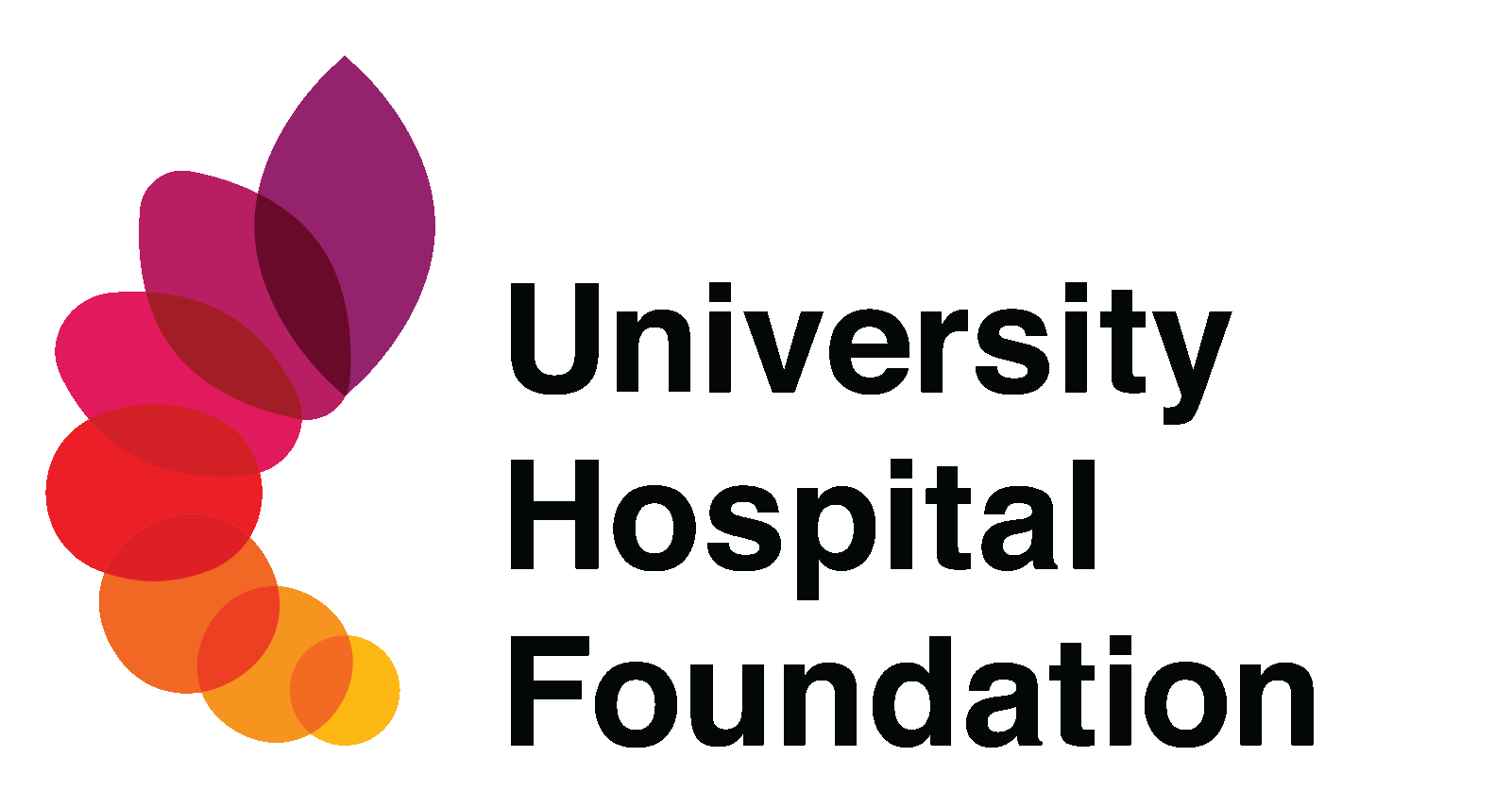Meet the Doc: Dr. Puneeta Tandon
 This month meet Dr. Puneeta Tandon, Hepatologist and founder of the Cirrhosis Care Clinic at the University of Alberta Hospital
This month meet Dr. Puneeta Tandon, Hepatologist and founder of the Cirrhosis Care Clinic at the University of Alberta Hospital
1. Where were you born?
I was born in Coventry, England, and then we moved when I was five years old to Blaine Lake, Saskatchewan (population: 700). So I grew up in a town of 700 people. I did kindergarten to Grade 12 with the same 13 kids – I loved it!
Blaine Lake is a Ukrainian Doukhobor town, so I grew up on lots of Indian and Ukrainian food. You can’t go wrong with that!
2. When and how did you decide to become a doctor?
My dad was the family doctor in Blaine Lake. He had a little white Jeep and you always knew where he was, outside the clinic or making a house call.
I could always see that he was so happy with his job. And everyone had such respect for him and really enjoyed him as a doctor. I think that’s what piqued my interest. I was also just drawn to the functioning of the body and being amazed by how our body is so intricate and amazingly developed.
I studied in Saskatoon at the University of Saskatchewan, did my residency here at the University of Alberta, did my masters in epidemiology here, and then went to Barcelona and Yale for extra training in liver disease, cirrhosis in particular.
3. What area of care do you specialize in?
I’m a hepatologist, so I work with patients who have liver disease, specifically cirrhosis, which is scarring of the liver. These people can become very, very sick.
I developed the Cirrhosis Care Clinic at the University of Alberta Hospital ten years ago. Since then we’ve grown from one patient to 400-500 patients. We have two nurses, a part-time dietician, and two doctors, including myself.
4. What do you do for fun?
I really love being outdoors. I love running. I’ve ran marathons and half-marathons before. Cycling. Yoga. Calming activities. Being with friends.
5. What is your favorite hangout?
I’m a morning person, so just being outside at that time of day, running in the river valley – that’s my favorite place to be.
6. What has support from the University Hospital Foundation meant for your program?
We know that physical frailty is one of the most important contributors to morbidity and mortality in our patients, and proper nutrition and exercise are essential to maintain health while patients are waiting to receive a life-saving transplant. But many patients don’t live close enough to a large center to be able to receive specialized, structured nutrition and exercise programming. We need to give all of our patients the tools they need so they are healthy enough to accept a transplant.
The Foundation funded a study that has helped our patients improve their muscle mass and muscle function. And through the Alberta Transplant Innovation Fund, in which the Foundation is a partner, I am working with a team of patients, dietitians and exercise specialists to design exercise videos tailored to patients who are waiting for a liver transplant. The program will be personalized and allow for ongoing interaction with a dietitian and exercise specialist team, to keep up motivation.
Thanks to the Foundation we’ve been able to create tools and practices that directly help our patients. For example, we developed a comprehensive, 40-page nutrition guide specifically for liver transplant patients that has input from our patients, as well as dieticians from across the country.
Thanks to generous donors to the University Hospital Foundation, Dr. Tandon is pioneering new approaches to caring for patients with liver disease, including innovative strategies that incorporate nutrition and exercise into the lives of patients awaiting a liver transplant.
Share this article
Facebook
Twitter
LinkedIn
